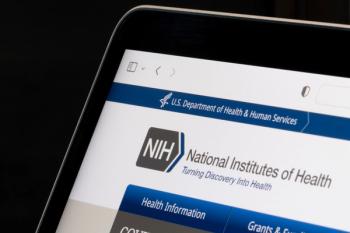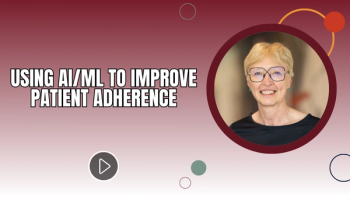
Ron Lanton, Partner, Lanton Law, discusses the impact of diversity bans and political challenges on the clinical trials industry.

Ron Lanton, Partner, Lanton Law, discusses the impact of diversity bans and political challenges on the clinical trials industry.

Phase III WAYPOINT trial shows Tezspire (tezepelumab) significantly reduces nasal polyp size and congestion severity in patients with severe, uncontrolled chronic rhinosinusitis with nasal polyps, while also decreasing the need for surgery and systemic glucocorticoids.

In this video interview, Iddo Peleg, CEO and co-founder at Yonalink, shares his thoughts on the current climate of clinical research following NIH funding cuts and the removal of FDA diversity guidelines.

Ron Lanton, Partner, Lanton Law, discusses how stakeholders must navigate funding future clinical research amid NIH budget cuts.

Current industry trends align with the need for improved, fit for purpose technology.

Xolair (omalizumab) shows superior efficacy and safety compared to multi-allergen oral immunotherapy in treating food allergies in the Phase III OUtMATCH trial, suggesting the potential to facilitate the introduction of allergenic foods into patients' diets after treatment.

A tool-based approach can significantly aid in the harmonization of regulatory requirements, mitigate inadvertent risks, and encourage collaboration by making data sharing more efficient and secure.

In this video interview, Vera Pomerantseva, director of product management, RBQM, eClinical Solutions, talks FDA’s latest protocol deviation guidance and potential changes to the draft.

Results from the RELATIVITY-098 trial of Opdualag in the adjuvant treatment of completely resected stage III-IV melanoma did not meet the primary endpoint of recurrence-free survival.

Policy change by the Trump administration now allows the agency to post public notices in the Federal Register and advertise meetings on scientific research groups.

Phase III PRESTIGE-AF trial shows that direct oral anticoagulants significantly lower the risk of ischemic stroke in survivors of intracerebral hemorrhage (ICH) with atrial fibrillation, but increased the risk of recurrent ICH and major bleeding complications.

In this video interview, Vera Pomerantseva, director of product management, RBQM, eClinical Solutions, discusses the importance of open dialogue during risk assessments.

How targeted AI can improve the performance of clinical trials.

The Phase III GEMSTONE-303 trial demonstrated that sugemalimab plus chemotherapy significantly improves overall survival and progression-free survival compared to chemotherapy in patients with locally advanced or metastatic gastric or gastroesophageal junction adenocarcinoma with PD-L1 CPS ≥5.

In this video interview, Vera Pomerantseva, director of product management, RBQM, eClinical Solutions, highlights FDA’s recent protocol deviations guidance and how it reinforces previous recommendations from industry.

Following initial positive results shared by Teva and Sanofi in December 2024, new data shows duvakitug (TEV’574/SAR447189) achieved higher rates of clinical remission compared to placebo in the advanced therapy-experienced subgroup.

The combination of Opdivo plus Yervoy produced significant Phase III trial results in the first-line treatment of patients aged 12 and older with unresectable or metastatic MSI-H/dMMR colorectal cancer.

In this video interview, Pomerantseva, director of product management, RBQM, eClinical Solutions, discusses the new guidance and its level of detail on the different types of protocol deviations.

In an interview with Applied Clinical Trials Associate Editor Don Tracy, Shakthi Kumar, chief strategy & business officer, Edetek, provides examples of how Agentic AI can accelerate clinical development.

In this video interview, Dipanwita Das, CEO & co-founder, Sorcero; Sujay Jadhav, CEO, Verana Health; and Kimberly Tableman, founder & CEO, ESPERO, highlight areas around clinical data that could have a large impact on the industry in 2025.

Data from the Phase III EMERGE trial show treatment with Symbravo provided more rapid and sustained migraine relief with improved quality of life in patients who previously had an inadequate response to CGRP treatments.

Tremfya could become the first IL-23 inhibitor with fully subcutaneous induction and maintenance options in the treatment of moderately to severely active ulcerative colitis.

In this video interview, Dominique Demolle, CEO of Cognivia, discusses how understanding the patient journey from the very beginning of a study can help mitigate risk and improve patient centricity.

In an interview with Applied Clinical Trials Associate Editor Don Tracy, Graham Clark, CEO, Phastar, discusses key objectives for attending SCOPE, the rise of real-world evidence, and partnerships critical to improving the success of clinical trial outcomes.

The first prespecified interim analysis of the Phase III AMPLIFY trial found that fixed-duration Calquence (acalabrutinib) plus venetoclax, with or without Gazyva (obinutuzumab), significantly improved progression-free survival compared to chemoimmunotherapy in fit patients with previously untreated chronic lymphocytic leukemia.

In an interview with Applied Clinical Trials Associate Editor Don Tracy, Sebastien Coppe, CEO, One2Treat, talks challenges faced by startups in advancing clinical trial innovation.

In this video interview, Dominique Demolle, CEO of Cognivia, talks artificial intelligence/machine learning and its potential in gathering patient data.

In this video interview, Dominique Demolle, CEO of Cognivia, highlights how patient non-adherence can increase trial timelines and incur additional costs.

The final analysis of the Phase III CheckMate -816 trial confirmed a statistically significant overall survival benefit for patients with resectable non-small cell lung cancer treated with neoadjuvant Opdivo (nivolumab) plus chemotherapy.

In an interview with Applied Clinical Trials Associate Editor Don Tracy, Samuel Salvaggio Senior Trial Design Lead, One2Treat, discusses partnerships that remain vital for guaranteeing success in clinical trial efficiency.